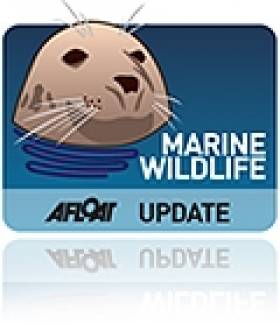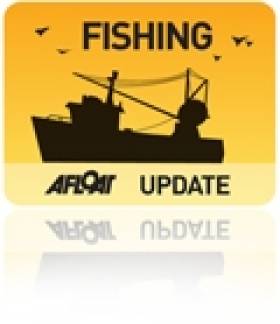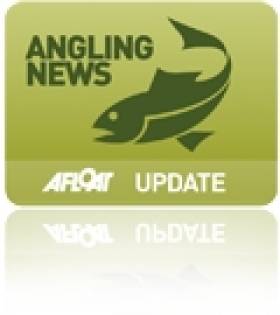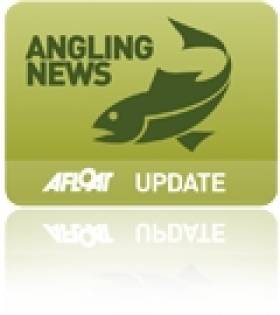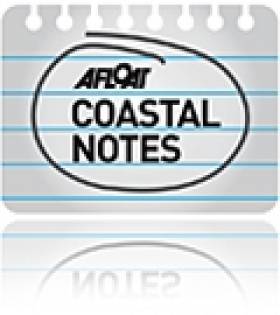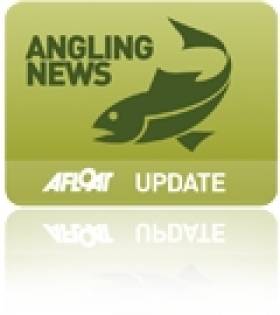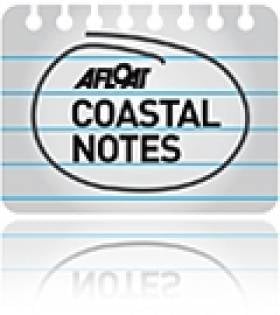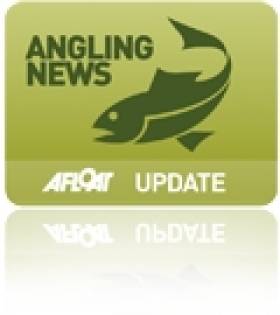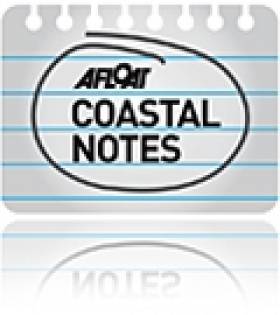Displaying items by tag: environment
President Michael D Becomes Sole Patron of IWDG
#MARINE WILDLIFE - Newly-elected Irish President Michael D Higgins has agreed to be the sole patron of the Irish Whale and Dolphin Group (IWDG).
President Higgins has a long history of supporting environmental causes. In his inaugural speech he referred to Ireland’s strong cultural, scientific and technological ethos.
IWDG chairman Kevin MacCormick welcomed the President’s decision as a strong endorsement of the group’s work in protecting Ireland's marine wildlife.
He stated: “The IWDG will continue to maintain a sense of pride in our extraordinary national marine heritage and our need for stewardship of the natural environment through research, education and conservation policies.”
The IWDG is Ireland’s only conservation group dedicated to protecting whales and dolphins in Irish waters. It celebrated its 21st anniversary in December 2011.
Licence Application for Aran Islands Fish Farm 'To Be Lodged in January'
#FISHING - The licence application for a proposed new deep-sea fish farm in the Aran Islands is expected to be lodged in January.
As previously reported on Afloat.ie, Bord Iascaigh Mhara's (BIM) planned 15,000-tonne organic salmon farm off Inis Oírr would be the largest of its kind in Europe, and would create hundreds of jobs in the area.
Commenting on the plans, Galway West Senator Fidelma Healy Eames said it was "a major opportunity for Galway and would represent a very significant economic boost for our coastal communities."
She added: "Deep sea fish farming has proven to be very economically beneficial in countries such as Norway, Chile and Scotland. It is timely that Ireland would capitalise on our fantastic marine resources as these countries have."
According to Healy Eames, the project is expected to "meet all environmental standards and will be barely visible from 2km away and effectively not visible from land.
"It would take up a negligible amount of inshore fisheries ground in the bay (0.22%) and would not interfere with existing fishing routes or Galway Bay ferry routes."
IFI Launches 2012 Sponsorship Programme
#ANGLING - Inland Fisheries Ireland (IFI) has announced the launch of its 2012 Sponsorship Programme.
The IFI Sponsorship Programme aims to increase awareness of IFI and its work, recreational angling, the sustainable commercial use of the inland fisheries resource and habitat issues.
Applications are invited from organisers and event promoters that will support the aims of the IFI sponsorship programme.
Events would be supported on the basis of: the location and nature of the event; the potential of the event to introduce new users to angling in an active capacity (ie not just as spectators); and to educate and inform stakeholders of angling, environmental, commercial salmon fisheries and habitat issues.
"The sustainable use of our wonderful inland fisheries and sea angling resources must be promoted," said Minister for Communications, Energy and Natural Resources, Pat Rabbitte, who launched the programme.
"People of all ages can enjoy angling in urban and rural settings, off charter boats and beaches and on quiet riversides.
"In addition, traditional commercial fisheries add value to small local communities, while biodiversity awareness ensures a sustainable resource for all."
Applications and details of the sponsorship programme are available online or from your local IFI office. The closing date for submissions is 27 January 2012.
Carlow Angler Spearheads Coarse Fishing Revival
#ANGLING - Tuesday's Enniscorthy Guardian writes about the revival of coarse fishing in Ireland, spearheaded by Gerry McStraw, chairman of Carlow Coarse Angling Club.
McStraw runs a tackle and bait business in Graiguecullen on the River Barrow, which has made a comeback after years of heavy poaching, and become a safe environment for families to enjoy.
Bream, hybrids, roach, dace and perch are now in abundance in the river - with bag weights of up to 50 lb of roach possible - while the pike pose a worthy challenge for the determined angler.
Carlow Sports Partnership will award a special bursary to the club on Wednesday 30 November in recognition of its work not only in protecting the river but also in youth development.
The Enniscorthy Guardian has more on the story HERE.
New Radar System Could Improve Coastal Forecasts
A new radar system in Galway could help predict extreme weather events more accurately, The Irish Times reports.
Scientists at NUI Galway's Ryan Institute, in collaboration with the IBM Smarter Cities Technology Centre in Dublin, have installed the system on the shoreline in Galway Bay.
The system - the first of its kind in North Atlantic Europe - consists of two antennae, on Mutton Island and Spiddal, which scan the surface of the bay every half hour.
It then sends high-resolutions maps of surface currents and details of wave height and direction directly to the scientists' base at the NUIG campus.
The data is used, along with meteorological data, to develop models for forecasing marine conditions from tidal currents to storm surges - common on the challenging coastline around Galway Bay and the Aran Islands.
Moreover, the system is set to benefit the local community and beyond as the data, when completed, will be made freely available.
Silicon Republic says that the Galway Bay Coastal Observing System (GalCOS) could be used by sailors, fishermen and tourists to more accurately assess conditions in the area.
It could also be of use to local authorities in terms of providing details on the best time to release effluent while minimising environmental damage.
“This type of predictive modelling is critical to our Smarter Cities agenda," said IBM's Dr Lisa Amini, "and the findings can be widely applied to protect coastal cities and their environments."
First Meeting of National Inland Fisheries Forum
Seasonality, climate change and the environment were the hot topics discussed at the inaugural meeting of the National Inland Fisheries Forum in Athlone last Thursday.
Inland Fisheries Ireland chief executive Dr Ciaran Byrne hosted the forum, whose 60 voluntary members - drawn from various stakeholder groups - are is set to meet twice annually.
The day saw TV personality and keen angler Derek Davis installed as chairman of the forum, following his appointment by the Minister for Natural Resources.
Davis noted that the forum "can influence policies for the protection, management, development and conservation of this valuable resource now and for the generations to come."
In his own address to the forum, Dr Ciaran Byrne highlighted the members' collective experience in fisheries management on Ireland's inland waterways.
“A number of you have served as members of the central and regional fisheries boards, some for over 20 years," he said. "As members of the forum you have the opportunity to discuss and advise on the future of inland fisheries in Ireland. IFI looks forward to receiving your considered views on the various issues.”
In a message to the meeting, Minister Pat Rabbitte stated his belief "that the forum will provide a meaningful channel of communication between the stakeholders and management of the inland fisheries resource".
Wexford Club Honoured in Coastcare Merit Awards
Wexford Sub Aqua Club has been recognised for its commitment to the environment in an awards ceremony in Dublin last week.
The Wexford People reports that Minister of State Fergus O'Dowd presented the club with An Taisce's Coastguard Initiative of the Year Award for its work in cleaning up the beaches and waters around Kilmore Quay.
The club was one of many organisations and volunteers throughout Ireland recognised by An Taisce's Coastcare Merit Awards.
Among them were the Portmarnock Community Coastcare Group and Malahide resident Philip Lynch, who was rewarded for his efforts in protecting the north Dublin town's coastline.
Salmon Return to the Tolka After More Than a Century
Dublin has yet another thing to celebrate with the news that wild Atlantic salmon have returned to what was long regarded as the dirtiest of the capital's inland waterways.
The Irish Independent reports that the fish have been spotted along the banks of the Tolka between Glasnevin and Finglas for the first time in at least 100 years.
Efforts to clean the river in recent years, as well as the removal of man-made weirs, are thought to have aided the recovery of the Tolka, which now provides plentiful nutrients for migratory fish.
Atlantic salmon in particular are considered by scientists to be a 'bio-indicator' in that they require a very high standard of water, so their presence in a given area defines it as a healthy environment.
The Tolka joins the Liffey and the Dodder in the list of Dublin rivers hosting thriving stocks of young fry in what has been a bumper year for salmon angling across the country.
The Irish Independent has more on the story HERE.
Dirty Dunes a Danger Says Coastwatch
Coastwatch has claimed that a ministerial order for the protection of sand dunes in Co Wexford is being breached, The Irish Times reports.
The order was made in January by former environment minister John Gormley to protect the Tinnaberna dunes from damage due to the storage of cattle over a number of years.
But the environmental group says that "dung, contaminated sediment and massive weed cultures remain" on site, and highlighted concern over its close proximity to a stream which flows into the sea near bathing water.
However, the National Parks and Wildlife service said its ecologist is "happy" with progress made on clearing the dunes.
The Irish Times has more on the story HERE.
Stakeholders Discuss Measures to Protect Celtic Sea
Stakeholders from France, England, Ireland and Wales attended a two-day workshop in Cork last week with a view to establishing a new code to protect the natural environment of the Celtic Sea from the effects of marine activities, World Fishing reports.
The workshop was hosted by Pisces, a marine project funded by EC LIFE+ that aims to develop holistic guidelines promoting a healthy marine environment in harmony with marine activities such as fishing and shipping, aquatic tourism and offshore infrastructure.
Roger Cook of the Welsh Federation of Sea Anglers said: "It’s great to be here with stakeholders who have a lot of information and knowledge of what’s going on, and we’re all coming here to share the objective that there are real advantages to us all if we can get this ecosystem based management thing right.”
The workshop was the first step in a process that will see consultations with various interested sectors before the final guidelines are published in 2012, fulfilling requirements of the European Union's Marine Strategy Framework Directive which requires member states to achieve or maintain 'good environmental status' by 2020.


























